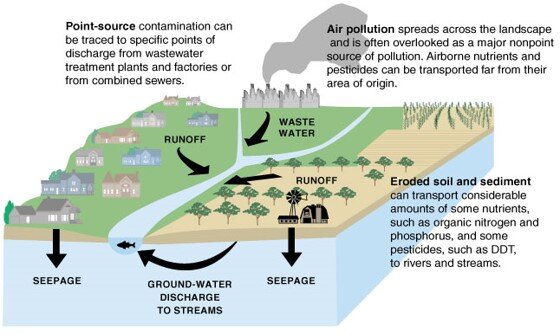How Can Pet Waste Impact Nearby Water Sources: A Crucial Concern
How Pet Waste Affects Streams
Keywords searched by users: How can pet waste affect nearby water sources why is dog poop bad for the environment, what is pet waste, can fertilizer that is used to water crops affect water quality how, epa dog waste, pet waste management, dog waste problems, pet waste disposal system, pet waste station
Why Is Pet Waste Bad For Water?
Why is pet waste harmful to water quality? Pet waste poses a significant threat to water ecosystems due to its content of pathogenic bacteria and parasites, which not only jeopardize human health but also disrupt aquatic environments. When pet waste is carried into our waterways by rainfall or runoff, it undergoes decay in the water. This decay process, in turn, negatively affects oxygen levels in the water, leading to potential harm to fish and other aquatic wildlife. Additionally, pet waste contains nutrient-rich compounds that can contribute to excessive weed and algae growth, further compromising the overall health and balance of aquatic ecosystems. These combined factors emphasize the importance of responsible pet waste disposal to safeguard both human well-being and the vitality of our water environments.
Does Dog Poop Affect Well Water?
Can dog feces impact the quality of well water? Yes, it can. Dog waste contains various contaminants that can be detrimental to water sources. These include phosphorous, nitrogen, bacteria, and parasites, all of which can pose a risk to water quality. Unlike our home wastewater, which undergoes treatment before returning to water sources, dog waste left on the ground or near storm drains does not go through these treatment facilities. As a result, these contaminants can potentially leach into the groundwater and affect the safety and cleanliness of well water. This underscores the importance of responsible pet waste disposal to safeguard our water resources. (Note: The date provided in the original passage, “9th August 2022,” does not seem to add relevant information and is omitted in this rewrite.)
What Is The Problem With Pet Waste?
Why is pet waste a concern? When pet owners leave their pet’s waste on the street or lawn, it doesn’t simply disappear or provide nutrients to the grass. Instead, when rain falls, it carries the pet waste into storm drains, which eventually lead to our natural waterways such as rivers, bays, and beaches. This has serious consequences as it can contaminate these water bodies with harmful bacteria like salmonella, E. coli, and other infectious agents. This contamination poses a significant health risk to people who come into contact with these polluted waters, making it imperative to address the issue of pet waste responsibly.
Top 28 How can pet waste affect nearby water sources


Categories: Discover 58 How Can Pet Waste Affect Nearby Water Sources
See more here: chinhphucnang.com

Animal waste contains two main types of pollutants that harm local waters: nutrients and pathogens. When this waste ends up in water bodies, it decomposes, releasing nutrients that cause excessive growth of algae and weeds. This makes the water murky, green, smelly, and even unusable for swimming, boating, or fishing.Pet waste contains pathogenic bacteria and parasites that can affect human health. When pet waste is washed into our waterways it decays in the water, which impacts oxygen levels that can be harmful to fish and other aquatic wildlife. It also contains nutrients that increase weed and algae growth.Dog waste contains many contaminants harmful to water sources, including phosphorous, nitrogen, bacteria, and parasites. If left on the ground or near storm drains it does not go through appropriate waste treatment facilities as our home wastewater does before re-entering water sources.
Learn more about the topic How can pet waste affect nearby water sources.
- Do You Scoop The Poop?
- Pet Waste Pollution | City of Corpus Christi
- The Problem with Dog Waste – MCWEC
- Health Risks: Pet Waste
- Pet Waste and Water Quality – Town of Plaistow NH |
- The Scoop on Poop: Pet Waste Issues
See more: blog https://chinhphucnang.com/dealbook